 This Easter season, I have been thinking a lot about my late brother Tim, who died in an accident seven years ago - at the age of 24 - while serving as an EMT in Indianapolis, IN. Tim’s death, along with the death of his IEMS partner Cody Medley, left all their friends and families at an inestimable loss. While I never got to meet Cody personally, I have learned that he was an exceptionally driven and talented young person who also served as a fire cadet before becoming a paramedic. Tim’s story is not much different; he was an Eagle Scout and volunteer EMS before going professional and passing his paramedic certification shortly before he died. In life, Tim achieved success in almost every field. As a teenager he won academic and musical scholarships and posted regular five-minute miles in outdoor and indoor track. He mastered Mandarin and spent an immersion summer in Shanghai. He participated in a service trip to Jamaica and volunteered back home as a “running buddy” alongside students with special needs in Central Park. These successes, paired with his later commitment to the medical profession, truly made him “A Man for Others” – the Jesuit motto of his alma mater, NYC’s Regis High School. Only looking backwards have I come to appreciate how brilliant Tim was. Perhaps you have a similar person in your family – someone who is so smart that they are intimidating. Tim was fearless in challenging others (especially those in authority) when he thought they were wrong. I have thought of him throughout this entire pandemic. As a first responder, I know that he would be helping wherever help was needed. As the outspoken person he was, I know he would have choice words for those he felt were ignoring public safety protocols. And most of all, as a cuttingly funny person, I know he would help me laugh during this time. Tim died three days into Lent, on February 16th, 2013. I have remembered him especially during every Lent and Easter since then. This past Lent was perhaps the most difficult yet. Many say that it takes seven years to heal from losing a loved one. The year 2020 marks seven years for all who loved Tim. To me, I felt healing – which also meant letting my guard down to feel fully the pangs of loss I couldn’t afford to feel in 2013. The coronavirus situation, if nothing else, has clarified the relationship between life and death. We are all vulnerable humans. This can be a scary thought, but also a freeing one. This can be a time to meditate on life as what it is – a short chance to grow, love, and serve others. We do not know how long the journey will last. I sometimes think that my brother attacked life the way he did because he might have sensed that he had less time than others. He used to wake me up after midnight, for instance, after I had already gone to bed, and say “Come on bro, get up, let’s make some memories.” At the time I thought he had a screw loose. Now I think he was prophetic. Recently in the Gospel readings, we hear Jesus tell the disciples, “Peace I leave with you; my peace I give to you. Not as the world gives do I give it to you. Do not let your hearts be troubled or afraid.” These words are a balm to all of us who have experienced loss, or who fear loss during these challenging times. As I read this passage, I am touched by the care and concern Jesus shows for his followers. He is also being quite honest with them and reminding them that they will lose him. The promise of peace is made realer by the reality of loss. This is what I receive from today and feel to be true in my own life. One year after Tim’s death, on Easter Sunday 2014, my family went to Mass in a church we had never been to before. The previous year had been difficult for everyone. Personally, I had not been taking care of myself mentally, physically, or spiritually. In the prior twelve months, I had not felt anything approaching peace. I was experiencing great fear and having awful panic attacks. That morning, sitting in the pews, waiting for Mass to begin, I suddenly noticed all sound around me fade out. I felt a sensation of all the breath leaving my body – and then my next breath was a slow, purposeful breath that was like drinking cool water in the desert. I was able to begin breathing in a deep and rhythmic way. Over the next few minutes, I felt as if warm light was streaming over me, from the head down. It was a feeling of complete release and relief. Ever since, I’ve been hoping to feel that peace again. Like my brother, I doubted (and still doubt) aspects of my faith. Tim wrestled to understand people who believe that faith and the intellectual life are incompatible. Being the true original that he was, I think he found it difficult at times to imagine a place in Christianity where he fit in. Yet after his death, I learned that some of Tim’s recent writings and reflections expressed the faith of a mature man who trusted in a loving God. I reflect on his words often as I remember my “kid brother” - who responded to numerous life-or-death situations and treated severe injuries which I would be terrified to walk into. Like everything else, Tim’s faith journey happened at a rate and intensity that most of us will never know. As Easter moves on and we navigate the new normal that is COVID-19, my spiritual suggestion (for what it’s worth) is this: In your prayers, dreams, and doings, try to let fear and hope co-exist. I will try to do the same. If we can hold those two seemingly irreconcilable opposites, we may find that peace can sprout like a flower right in between our hands.
0 Comments
As I write this on May 9, it has been 54 days since the Diocese of Rockville Centre on Long Island, New York suspended all liturgies, devotions, meetings, and non-essential activities in parishes. This was the second major announcement for our parish family in East Patchogue in a 3-week period. At the beginning of March, our Capuchin Province of St Mary announced that we will be withdrawing our friars from the parish this summer. So, not only would we be without public Masses, we wouldn’t even have a chance to grieve our departure with the community. And if that wasn’t enough, only four days after beginning to stream Masses on Facebook Live, our pastor tested positive for COVID-19. This development put a halt on our community’s ability to be in common spaces and thus ending the live communication with our parish family. Although I tested negative, the four of us friars isolated ourselves in our rooms, staggered our meals for 45-minute periods three times a day, and wore masks and gloves any time we shadowed the friary halls. Many parishioners were asked to self-quarantine as well since they had come in contact with our pastor at Masses the previous weekend. During this time, several faithful parishioners passed away, both COVID and non-COVID related deaths. We couldn’t assist at their burials. We couldn’t anoint or reconcile those who requested the sacraments. In a word, we felt helpless. Unfortunately, one of our senior friars living here began experiencing symptoms. I needed to drive him to be tested for the virus, exposing myself again. He tested positive and a few days later was admitted to the hospital. With two days remaining in my 14-day isolation period, the count turned back to zero. As a community, for 34 days we never gathered, prayed, shared a meal, or even saw each other for more than a moment. I don’t share this with you so that you may feel bad for us or think how strong we are, because we all have our stories of how life is different now. For our parish community, the time in isolation in the midst of an impending transition and a world-wide pandemic offered us priests an opportunity to do what we could do rather than what we would do. The Code of Canon Law states, “in order to fulfill his office diligently, a pastor [& his vicar] is to strive to know the faithful entrusted to his care” (Can. 529 §1). The Code offers specific tasks of a pastor so that he can know his “flock,” almost all of which no one on Long Island is permitted to do at this time. Because of this, many suffer. They endure loneliness in the midst of death without a proper funeral Mass for a loved one. They crave the Eucharist and long to be in His presence in Adoration. They yearn for the words of absolution of their sins. Parents of children making First Communion and Confirmation wonder uneasily when their child will receive the sacraments and how that will be done. The fact is, we share in their suffering. We share in their suffering using the communication tools at our disposal in two ways: The first is the use of the telephone and visual communication. We listen to our parishioners’ emotions, encourage them to pray, and offer a joke now and then. For us, this has been our most effective ministry to personally “know” our parish family during this time. I also have a weekly Sunday Mass for friends and family from literally the four corners of the country (Maine, Alaska, San Diego, and Tampa). A simple call brings tremendous light into the darkness many experience in these times. Secondly, our lives as Christians, particularly in ministry, can often be characterized using Martha and Mary’s example (Luke 10). In a parish setting, Martha’s example of service tends to be the model. We as ministers have had a unique opportunity to partake in Mary’s ministry of contemplation. With time not often available, God has provided this opportunity to sit at Jesus’ feet to listen, pray, ponder, reflect, petition, grieve, laugh, cry, and wonder. In a time of uncertainty and pain for our little parish, it’s the best thing we can offer them. As Christians, we know that suffering is inevitable. It’s the cross. But, if the story ends there, we aren’t Christians. Because from death came life. From the brokenness, the sadness, even despair, life abounded in the Risen Lord. We, as Christians, MUST witness to this. We, as parish families, do not suffer alone. We suffer together. We suffer with Christ. We may at times feel helpless, but never hopeless. *a final note to say that everyone in our local friary is now healthy. My favorite things to eat are sweet treats. Chocolate any-sort-of-way is my snack of choice. I love it! During this quarantined time at home, I’ve found myself baking and eating all kinds of delicious foods and sweet treats. The end result (besides having a belly full of tasty cookies and cakes) has been enjoying these treats together with my family like a little “ritual.” Every night, there is a delicious baked-good in the house that my husband and I look forward to enjoying together. I’ve found comfort in this time together, and it’s something I want to hang onto even after quarantine. My husband and I sit back, unwind with conversation or some TV, and enjoy a yummy treat together on the couch. One might even call it our quarantine tradition! Baking over these past few weeks has brought another level of joy for me apart from devouring the finished product. Baking in the kitchen brings me joy during this time: I decide what delicious treat to make, assemble all the supplies, read each step closely and carefully, get each ingredient measured just right, and wait patiently for it all to bake. I’m not a very meticulous person when it comes to cooking and baking, but baking with recipes has been a newfound joy that fills my heart. The patron saint of bakers and pastry chefs is St. Honore, whose feast day was just on May 16th. He was a 6th century bishop in France who is normally depicted with a baker’s paddle and wheat; he is celebrated in Paris with a three-day feast and a festival of bread. There is also a special cake in his honor called the “Gateau St. Honore” made of cream puffs, caramelized sugar, and pastry creams. Maybe I’ll honor his feast day (a little late) with a cream puff masterpiece of my own! Baking brings me joy, and perhaps it can bring you joy during this time as well. Baking with kids, although slightly messier, can be a great source of joy that builds lasting memories. Baking with a spouse or significant other can also bring you closer together. Here is a list of 9 ideas related to baking that will not only fill your bellies, but also your hearts—adding a little more sweetness to your life during this pandemic and time spent at home:
St. Honore, pray for us! It was not too long ago that I learned the extremely valuable lesson of not worrying about things outside of my control, as they keep me from enjoying the good. And what great timing it was to learn this before a global pandemic. There are so many aspects of life that are outside of our control now due to the virus, and after I learned that lesson I found myself quickly trying to take control over the parts I could and make them worth every minute. After all, I did just learn this great lesson that, essentially, seems to solve many problems. I started to take time out of my day to plan the goals I wanted to reach, making sure I would have every second filled so I would not succumb to the quarantine lag. I started waking up excessively early even though classes were not until noon, made sure I would be outside every day for exercise or a breath of fresh air, started eating three meals a day when I would never eat breakfast before, and even spent three hours practicing Calculus so I could “be ahead of the game when college comes in the fall.” At night, I would not allow myself to relax with any screen time—if I was on a screen I was either practicing Spanish on Duolingo or putting reminders in my phone for things to do the next day. Each day was just a constant cycle of doing. Obviously, it felt great to know that I had learned the lesson of taking control of the things I could and not worrying about anything I couldn’t. However, what I neglected to realize is that, while this lesson is effective on any regular day, my life was no longer normal anymore. Essentially what I was doing was taking my life in quarantine and creating a façade of normalcy. It was such an attempt at fake normalcy that I was doing things I wouldn’t even do during my pre-pandemic life. I soon learned to embrace quarantine not as my only chance to get ahead of life, but rather an opportunity to actually relax with virtually no repercussions. While I believe many of us can take this time to step away from our preconceived notions of success and normalcy , it is still important to do activities to keep your mind, body, and spirit stimulated as long as these activities do not take over your day. Try out prayerful meditation, pick up that hobby that you always wanted to do but never had time for, talk to your family, take time to reflect, but most importantly make sure that whatever you’re doing is for YOUR health and betterment—not for your grades, your job, or your friends. The world has no choice but to resume slowly, and you will have time to get your normal obligations taken care of. I encourage you to use this time to step outside your comfort zone and do things that fill up your mental, physical, or spiritual tank. Then, when we begin to reembrace normalcy, we will be better prepared to share what we’ve learned and who we are with our world. The Easter season assaults the physical and spiritual senses, calling the body and soul to unite as we share in a mere glimpse of the eternal life that was offered to us when the gates of paradise were opened on that beautiful Easter morning. Typically around this time, the smell of the Easter flowers adorning the sanctuary remind us of new life. The scent and sight of the burning incense and candles rising to heaven with our humble cries of “Sanctus, Sanctus, Sanctus” remind us of our prayers going up to the altar of God. We reach our fingertips out to touch the droplets of water washing over us and are reminded of our baptismal promises. The reception of the Eucharist leaps past our lips and dances on our tongue as we are engulfed, body and soul, by the true presence of our risen Lord. “Alleluia!! He is RISEN!! Where, oh death, is your sting?!” The words resound from the core of our being and echo through our hearts, escaping our lips in cries of exaltation. A few short weeks ago, these words were uttered from the speakers of televisions, laptops, and phones as we ushered in the Easter season as a Catholic family and community during the coronavirus pandemic. The tangible nature of the Catholic faith and the deep-rooted sense of community that the Easter season brings made this a difficult celebration for many of us. This rich season is a beautiful fifty-day celebration spanning from Easter Sunday to Pentecost. What a challenge it is, though, to maintain our joy when our hearts feel heavy and our senses yearn to be submerged in the deep traditions and rituals of our faith. “I am a practicing Catholic”. We may have uttered these words at various stages throughout our life for various reasons. Perhaps this simple phrase is the key we inherently possess to bridge the gap we may be feeling and provide much needed balm to our weary spirits and aching senses. As many of the doors of our church buildings closed for the safety, protection, and health of our communities, the foundations of the domestic church have begun to shine forth. For many, our homes have become the sole place for worship, praise, and spiritual communion, and we find ourselves face to face with the deep reality of Saint Paul’s words in his letter to the Corinthians. “For we know that if our earthly dwelling,* a tent, should be destroyed, we have a building from God, a dwelling not made with hands, eternal in heaven…For in this tent we groan, longing to be further clothed with our heavenly habitation…So we are always courageous, although we know that while we are at home in the body we are away from the Lord, for we walk by faith, not by sight” (2 Cor. 5:1-8). And so the words, “I am a practicing Catholic” tumble around deep in our beings as we seek to uncover the answers that the groaning spirit within us already understands. We can “practice” our Catholicism in a new, perhaps, different way during this time. Do we know the power of our habits? Our habits form and inform both the nature of how we approach our days, as well as the manner in which we respond to catalysts in our daily life. What do you automatically do when you wake up in the morning? The action steps that you take both consciously and subconsciously are habits and routines that you have formed over time to serve you in preparing to approach the day that lies ahead. There are two main instigators that cause us to revise and/or disrupt our habits: the desire for change or a need to adapt due to changing circumstances around us. Perhaps at this time both of these instigators are merging to grant us with a divine opportunity to draw ourselves closer to God. Within the very practice of our Catholic faith lie “habits” called virtues that can be practiced, developed, and deepened to help us grow closer to God and to fortify our relationship with Jesus Christ through the divine assistance of the Holy Spirit. The Catholic virtues are a beautiful way to continue to explore, celebrate, and proclaim the spiritually tangible aspects of our faith. By embracing these changing circumstances around us through a contrite desire to grow in virtue, concrete decisions and actions can be taken to deepen our virtuous life. In doing so, we strive to unite our physical actions and spiritual practices to grow in virtue while cultivating our domestic churches. If, therefore, we can embrace this time in our history to strengthen our virtuous resolve to truly anoint our lives and those around us with a real presence of the Living God, perhaps we may find that, although the doors of our earthly buildings have been temporarily closed, we can embrace the opportunity to unite our voices with the cries of the saints of heaven: “Alleluia! He is Risen!” “Our hearts are burning within us!” “My Lord and My God!” Many of us are acutely aware of how the coronavirus pandemic has imposed restrictions on our daily life. Social distancing (or “self-imposed monasticism”, as Bishop Barron puts it) for weeks has drastically changed our routines but reduces the risk of infecting others. While we cannot worship, shop, entertain, work, or relax as usual, we can adapt how we carry out these activities in isolation and facilitate opportunities to foster connections with peace of mind. As a Knight of Columbus, it was at first a challenge for me to grasp how a global Catholic service order—built upon fraternity among members as a core principle—could carry out its charitable works in isolation. The needs of the community my local council usually served were not going to decrease as this crisis continued, so we found ourselves reviewing the resources at our disposal in order to comply with the federal and state guidelines of social distancing. Since we could not meet as a council to plan our actions, communicating online became the norm. My brother Knights were able to approve plans to shop for the needs of those at-risk populations, collect food and supplies for local distribution, and donate funds to the parishes we served. We reached out to healthcare workers and those who are alone to address their needs and lend a listening ear. As Knights, we’re simply caring for our communities; our Faith rallies us to action to serve in the likeness of our Founder, Venerable Fr. Michael J. McGivney and, of course, our Lord. There are challenges ahead, but we rise to the occasion through prayer, hope, and love. The doors may be closed, but make no mistake: the Church is alive! Christians and really anyone who seeks the common good are given this same opportunity to review their position in life and see if they can offer any support among their neighbors. Young families are dealing with schools and recreational areas being restricted; some neighborhoods are decorating themselves with various engaging themes, such as Christmas light exhibitions or placing teddy bears in windows, that families can drive through. In addition, those of advanced age or among vulnerable populations may not feel safe leaving their homes during the pandemic; loved ones are sending letters, making phone calls, or even stopping outside of windows and doors to share smiles and wave safely across the glass. As we restrict our time outside of our homes, we nevertheless find inspiration in the selfless actions of those continuing to minister to the physical, mental, and spiritual needs of others. Doctors, nurses, cleaning crews, food workers, priests, religious, and many others on the front lines of this crisis are faithfully doing their duties wherever they are called. The rest of us do our part by restricting unnecessary activities and offering our love to anyone in need. We may have personal doubts and worry for our loved ones, and that’s okay. We have not lived through anything like this before, but we know the Risen Lord has conquered death forever. He was with the disciples even when they doubted His Resurrection; He is with us now… and through the hour of our death. The Easter season continues. While most of the Masses we are participating in are livestreams and our usual Communion with the Lord is currently a spiritual act, we continue to proclaim “Alleluia!” Our hope has not diminished. We have no reason to fear! The victory has been won. The best is yet to come. He is risen from the dead. Glory to God forever and ever. Praised be Jesus Christ, now and always! Amen. “What is man that you are mindful of him or the son of man that you are for him?” Ps. 8:4 In a time such as this, in the middle of a worldwide pandemic, many people are tempted to ask questions: Why is this happening Lord? What will become of me? Have you forsaken us? Do you still care for us? As Catholics, we need only to search the holy scriptures to find our answers. Isaiah 41:10-13 says “For I am the Lord, your God, who takes hold of your hand and says to you, do not fear, for I am with you; be not dismayed, for I am your God, I will strengthen you, I will help you, I will uphold you with my victorious hand.” In the midst of overwhelming craziness, staring down the face of so many unknowns, this verse gives me such comfort! I read it and remember the Israelites wandering in the desert for a very long time, not knowing how or when they were going to be delivered to the Promised Land, and it puts this situation in better perspective. From history, these people were fed and their needs provided for because God promised He would help them. I do not need to know when this specific disease will be eliminated. I do not need to know how long my ‘normal life’ will be turned upside down. I do not need to worry if my basic needs will be provided for. I have a promise from the Almighty. His promise is unbreakable and everlasting. So where does my anxiety come from? It comes from not leaning on His strength, not trusting in His provision, not resting in His perfect love. I need to spend my time praising and thanking Him for the fact that He cares about every minute detail of my life and has told me He will not abandon me – unequivocally! Upon my rising, I must choose to be grateful for another day to live in service of my husband, my children, and my neighbors. When I begin in gratitude, I can step forward into the day with all it’s uncertainties and live in peace, not in fear. “Cast all your anxiety on him because he cares for you.” 1 Peter 5:7 When I recall that God cares for each of us with a love that is perfect, this knowledge begins to settle in my heart and permeates my soul. It is an act of surrender – to cast my human weaknesses on Him and go about the duties of my day with a disposition of peace and hope. St. Paul reminds us in 2 Timothy 1:7: “For the spirit God gives us does not make us timid, but gives us peace, love and self-discipline.” This applies to all of us – not just the people in Ephesus a couple thousand years ago! God’s love is timeless, limitless, and eternal. It is beyond our human comprehension. It requires us to choose to believe and experience Christ’s love within us. You see, we have more important things to be doing than spending our time questioning, worrying, wondering, lamenting, and fearing. He reassures us over and over that He is near, is helping us, and is carrying us. We have evidence of His care for us in the many selfless people on the front lines serving our medical needs, manning our stores, and delivering our supplies. They are God’s love made manifest in this crisis. It is our choice to decide that we will believe this and trust moment by moment that His promise is true and secure. We don’t have to fully understand it – because we won’t – but in order to live in serenity with a calm mind, we must choose to walk in complete belief. We can accomplish this amidst great trial, because He is our helper and our strength, our strong tower. As we live in the disposition of faith that God will care for us in all circumstances, we can reach out to those around us and share this magnificent gift. We can be His hands, His voice, or His smile to quell the fear in another. This is our call as Christians – to wholeheartedly believe and to unconditionally share it with everyone. It seems so simple. And it is – when we devote ourselves to prayer and fasting and Scripture reading. We are afforded so many wonderful ways to do these. We have our Bibles in book form, on our tablets and phones. We can stream Masses being offered in churches all over the world right from our couches. There are numerous holy men and women who speak and write about God’s promises that we can listen to or read. In our progressive digital age, it is amazingly easy to immerse ourselves in material that will strengthen our belief and encourage us in the truth of God’s care for us. How fortunate we are! We can go about our days, in the middle of great strife, with confidence that God is mindful of us, each and every one of us. “Whoever trusts in the Lord is kept safe.” Proverbs 29:25 Still, because I am just a mere mortal with lots of frailties that can derail me from the Godly path, I keep reminders on the walls of my home to keep me focused on this truth. A wooden sign that reads ‘Expect a Miracle’ hangs in my family room. The Good Shepherd cradling a sheep hangs in my dining room. Pictures of the Sacred Heart of Jesus and the Immaculate Heart of Mary hang over my bed. The face of Jesus hangs in my living room. Crucifixes hang in every room. These are my personal visual reminders of the love of God that help me keep my eyes on Him, my heart comforted, and my mind at peace. I recommend everyone find tangible ways to stay connected to this truth so that we can be disposed to share it with others. It is when I live from this mindset that I can sing with total confidence that it is well, it is well with my soul! “Consider it pure joy, whenever you face trials of many kinds, because you know that the testing of your faith develops perseverance. Perseverance must finish its work so that you may be mature and complete, not lacking anything. If any of you lacks wisdom, he should ask God, who gives generously to all without finding fault, and it will be given to him. But when he asks, he must BELIEVE and not doubt.” James 1:1-8 Who are we that God cares for us? We are His. He thought us into being because He is love and He wants to share His love with us for time and eternity. That is a comfort and a confidence I can rest in! This is the Savior who is mindful of me. Thank you, Lord! Continue to shower me with the grace to walk steadfast in my belief. No matter the trials or circumstances, God is with us and all will be well. My wife and I welcomed our first daughter into the world on February 24th, and we brought her home a few days later on Ash Wednesday. As is the typical newborn parent experience, we’ve endured frustrating, sleepless nights and reveled in joy-filled, playful mornings. Because of stay-at-home, work-from-home orders in Texas, my parental leave has been longer than I anticipated, but I believe this is a blessing. Each moment I’ve had with my daughter has been precious, and as I sit on this (squeaky!) rocking chair holding her in my arms, balancing my laptop on my knee, the recent advice of expert parents runs through my mind and evokes in my heart a fresh understanding of God’s divine fatherhood and my pursuit of sainthood. In the weeks leading up to our daughter’s birth, one mother of 6 said something to me to the effect of: “The nights are long and the days are short, but the years are the fastest of all.” In these first few weeks of parenthood, I’ve found that my wife is more easily roused during the night. When it’s my turn (opportunity, really) to get up mid-REM cycle, the nights really do feel long. Honestly, they drag. But it’s struck me more than once that getting up in the middle of the night is a very practical way that I can pursue holiness in my vocation. To sacrifice sleep to offer comfort to my child and rest for my wife is not in the same league as answering a burning question for the Summa or calling out a witty line while being burned at the stake, but it is a constant formation in the virtues of humility and charity. I’m led to consider St. Therese’s “little way,” which makes more and more sense each day. Those long nights always do turn into days and, I’m sure, the years will speed by soon. Many people, including our pediatrician, have said, “Always hold your baby in the first few weeks, even when she’s sleeping. You’re not spoiling her, and you won’t get to do that forever.” As a general rule, I’ve always believed babies are cute and, therefore, worthy of spoiling. But no one warned me that when it comes to one’s own child, evolutionary biology and divine motivation combine to make one certain that one’s own baby is the most perfect, most adorable being on all the earth and, therefore, is automatically deserving of every good thing. When I’m holding my daughter in my arms, and I gaze upon her (perfect) little face with its self-inflicted scratches and baby acne, I’m blown away at how much love I have for her. Then, I’m briefly terrified at the thought that something bad could happen to her. And isn’t that how it is for our relationship with God our Father? He gazes upon us, loving us with all our imperfections, slightly terrified and sorrowful at the thought that sin and death and temporal pursuits could lead us to ruin. As I adjust this baby in my arms right now, I’m wondering whether God pulls us closer to His bosom in those moments of near separation, gazing upon us all the while, reminding us how beloved we are with, as Nouwen says in Life of the Beloved, “all the tenderness and force that love can hold.” There are many more pieces of advice that have yielded great spiritual reflections for me these last few weeks. Now, I know that I’m not offering any groundbreaking reflections, but maybe the point of this post is not to offer a new thought, but instead to acknowledge that God has spoken these familiar realities of His love and affection for me in a deeper way through the experience of my vocation. I’m encouraged to remind you in these times of distress: God is a loving Father whose sacrificial love turns against all else, even His own justice (Deus Caritas Est, 10) to gaze upon you with all the force that love can hold. Perhaps this is a notion all mothers and fathers before me—spiritual, adoptive, and biological—have come to understand already, but it’s consoling to know that in a time of uncertainty, God still speaks to and affirms His people through personal encounters. Even through a sleeping baby and a squeaky rocking chair. For more resources on Marriage and Family, please click here. 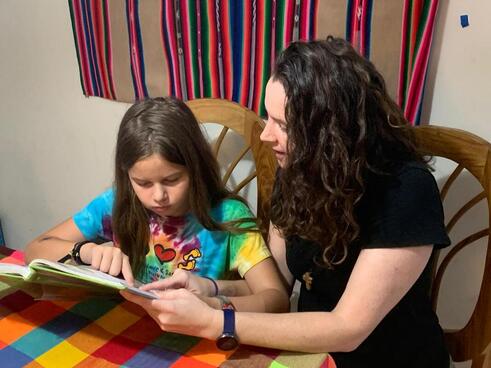 Like most of you, my family and I have been in quarantine. When El Salvador’s President Nayib Bukele first announced the prospect of a quarantine—before there were any confirmed cases here—our family decided that it would be best to practice physical distancing right away. The public hospital system here in El Salvador is precarious under normal circumstances, and once the virus is at its peak, it won’t matter how much money you have. If you require a hospital bed, you will go where there is one available. The national convention center in San Salvador is being converted into a 3,000-bed hospital, with 1,000 of those beds designated for intensive-care patients. Our best bet for surviving this pandemic is to stay home and find ways to continue our relationships with the people at our ministries without being physically present—a challenge, but also an opportunity. My ministry, the women’s cooperative ACOMUJERZA, has come to a screeching halt. We were in the middle of a huge order for the Education Ministry of El Salvador. We are sewing over 3,000 school uniforms as part of a government-funded program. This order is the biggest we have ever been contracted to make, and frankly before this pandemic our members were scrambling to figure out how we were going to sew more than 3,000 pieces in 60 days and how we were going to pay everyone to make all of those uniforms. ACOMUJERZA applied for a loan from a non-governmental organization that has helped us in the past. We received the preliminary approval for the loan, but with all of the economic uncertainty, the NGO froze all lending for the foreseeable future. ACOMUJERZA members packed up all of the finished uniforms and prepared the building for the beginning of a nationwide mandatory quarantine on Saturday, March 21. There is so much uncertainty, and yet when I talk to each of our members, they remain positive. The government has promised a government grant of $300 a month to unsalaried workers—those most in need, which applies to some of our members—but that money has not been distributed yet. With 12 days into our quarantine, I worry about how my friends at the cooperative are surviving and if they have enough food to eat. I spoke with my friend Juanita from the women’s cooperative the other day. She told me that, when she first went home after the president declared quarantine, all she wanted to do was cry. She felt depressed and sad to not be able to go to work and she felt a loss of her freedom. But after a few days, she pulled herself out of her sadness, and she told me about all of the things that she and her daughter decided to do during the mandatory quarantine. They already painted a few rooms in their house, got rid of old clothes, sewed masks and spent time tending to her garden. “Now the time just seems to be going by quickly, thanks be to God.” she said to me during our last phone call. We chatted a bit longer and before getting off the phone, she reminded me that “we are all called to do our part and, for now, our part is staying at home.” While checking over my daughter Evey’s daily journal assignment for school, I realized just how I am doing my part. She was assigned to write about what she liked and didn’t like about being homeschooled during the quarantine. She wrote, “I like homeschooling because it is fun and I get to do more fun stuff with my mom.” Maybe “doing my part” is keeping spirits up among the members of the cooperative, sharing my gifts and talents with Maryknoll Lay Missioners, spending more time with my children and modeling for them how to adjust to an ever-changing reality This blog post was re-published with permission from Maryknoll Lay Missioners. To learn more about their work and mission, please click here. To learn about other faith-based service opportunities, please click here. 1. Have Trust in the Lord: In every situation, Pallotti sought the will of God. Any difficult situation should not discourage us to doubt the goodness of God. That is why when Count Antonio Maria Plebani (who was staying in the region of Marche), wrote with a heavy heart about the safety of his son who was studying in Rome, Pallotti responded saying: “Let us seek God. Let us seek Him always and in all the things. And we will find Him and in Him we will all be saved.” It was the time of the cholera epidemic. The suffering was visible for everyone to see. People - the saints and the ordinary, the churchmen and the lay people – died in large numbers. Pallotti’s close acquaintances – his father, his confessor, his friends, and associates - died during the epidemic. Pallotti did not lose heart or faith. He held himself like a strong tree with a firm foundation that fails to bow down to the strong wind of suffering. The situation is not different today. There is suffering everywhere. The invisible virus seems to be all-powerful. People, even people we know, suffer and die. We especially remember our confrere Fr. Alberto Fernandez Merayo, SAC (Heart of Jesus Province) who died of the deadly Coronavirus on April 7th, 2020. Some of our members in Poland (Oltarzew) have tested positive for the virus. These incidents can shake the foundations of our faith. God seems to be silent or absent. Our prayers seem to fall on deaf ears. It is the same for lay people. People look for God and they cannot seem to find Him! When they seek answers from us, the clergy, it is difficult to try and have answers for them. In spite of everything, it is very necessary that we, especially the priests and religious, stand as solid believers believing in the goodness of the Lord. In the time of Pallotti, there was the exemplary Pope Gregory XVI. Today we have Pope Francis doing the same. He sends out the message of a pastor who is truly concerned for the faithful and who continues to battle for them with his prayers. His actions have indeed strengthened the Catholic faithful all over the world. A man of God standing firm in faith—even in the most difficult times—is the most powerful symbol. Pallotti was one such symbol for the people who sought his advice in the most difficult times of the cholera epidemic. 2. ‘Do your Duties’: Our first necessary act is to be faithful and to stand firm in our beliefs. Faith alone does not suffice. “Faith without works is dead” writes the Apostle James (Jas 2:14-17). In a letter written to Giovanni Merchetti, a married lay person and a collaborator of Pallotti, we find the following advice: “it is better to attend to one’s proper duties [in the time of the epidemic].” Pallotti seems to be a believer in the battle cry: ‘Stop whining. Start working.’ Every person is supposed to do his or her duty in all situations, especially in the difficult times. The fear of sickness can limit us with inaction. Life under lockdown can also eventually result in lethargy. However, we should not allow our spirit to be burdened. Life under lockdown amidst the sickness should not be an excuse. We are supposed to be doing our duties to the best of our ability with the limits in place. In this regard, some great examples in these times are medical doctors, selfless nurses, the numerous pharmacists, generous healthcare workers, the committed members of the staff in hospitals, the police force, the proprietors of various shops selling the necessary food, the unknown truck drivers, the service minded priests and the other Church personnel. They were acknowledged by our beloved Pope Francis when he delivered the extraordinary blessings ‘To the City and to the World’ (Urbi et Orbi) on March 27th, 2020. The world will move on and there will be hope if everyone does his or her duty. Pallotti was very much aware of this simple but a significant fact. Because of Pallotti’s hope, one of his advices for the time of epidemic was ‘to do one’s duties.’ 3. Acts of Mercy: The next area in which Pallotti directed his actions in difficult times like the cholera epidemic was to be sensitive to the needs of his neighbors. To be charitable is good, and to be charitable in the time of epidemic is better. It is best when the beneficiary can in no way repay you. Pallotti was an exemplary figure in that sense. He engaged both in the Spiritual and Corporal Works of Mercy. Spiritual Works of Mercy: As the epidemic was ravaging Rome and wreaking havoc on the physical and spiritual lives of people, Pallotti wasted no opportunity to restore and strengthen the faith of the people. To the people who sought his counsel, he reassured them that God was still in control. It was praiseworthy that people sought the will of God in everything, including in the rough times of the epidemic. To the Apostolic Secretary in Vienna, who was very anxious for his life, Pallotti assured him that he would come out of the scourge untouched. Later, when he was proved right, Pallotti wrote to the secretary to ask for pardon and forgiveness from the Lord for the moments he was doubtful and weak in his faith. That was Pallotti’s way of counseling the doubtful and strengthening the feeble minded. The people who received the instructions of Pallotti were struck by the certainty with which he pronounced his teachings. Pallotti was also on the forefront of praying for the suffering people. When the Church organized a novena in honor of Our Lady and when it decided on a barefoot procession with the icon of the Madonna Salus Populi Romani, Pallotti plunged himself completely into prayerful ministries. For instance, Pallotti organized a Triduum in the Church of the Holy Spirit of the Neapolitans with a special intention to procure the necessary graces for the people infected with cholera. On another occasion, for the votive procession organized by the Church, Pallotti tried to get as many clergy as possible to participate in the procession. That was Pallotti’s service through prayer. Pallotti also spent a lot of time in the confessional hearing the sins of the faithful, and he encouraged his fellow clergy to do the same. In the extraordinary time of the epidemic, Pallotti requested the ministerial faculties for reserved sins for his collaborators (Frs. Melia and Michettoni). That was the comforting ministry of Pallotti in the time of the epidemic. Corporal Acts of Mercy: Pallotti also had the foresight to know that the spread of the epidemic would cause many people to lose their jobs and cause financial stress on many families paying for necessities and medical expenses. This would eventually result in a great increase in the number of the poor. Pallotti had an innovative idea to help such people in need. He placed a small box in the Church of the Holy Spirit of the Neapolitans (where Pallotti was the Rector). It was a box in which people in need could drop a piece of paper with their names, surnames, the place of their residence, their parish and their particular pressing need. Later the members of the Union were sent two by two with the relief materials to the homes of the people in need. Even before the arrival of the epidemic in Rome, when cholera was already present in the port city of Naples, Pallotti had sent bread to the affected people there. Thus, we learn that Pallotti fed the hungry when they most needed food. Besides carrying food for the needy, Pallotti and the members of the Union also attended to their other needs. They carried clothing to whoever lacked and asked for it (clothing the naked). They distributed lemons, which were thought to be a powerful medicine against the cholera outbreak, to the sickly. Pallotti asked his collaborators to assist the sick in their suffering. Additionally, Pallotti was seen on many occasions walking behind a hearse for the dead with his surplice and stole (burying the dead). Today, we are called to emulate the example of St. Vincent Pallotti. If an act of charity is possible, it should be done. Everyone is called to respond to the call of charity. There is no excuse for anyone. If a person is old or sick in bed, he or she can certainly pray for all of suffering humanity and they can offer his or her suffering as mortification for the world’s sins. If a person is young and active, he or she should participate in as many of the works of mercy as possible. A priest can very well say votive masses for the end of the epidemic. A religious or lay associate can dedicate him or herself to pray for the sick and the suffering and for the medical professionals who fight the deadly virus. The priests and religious are to stay with the flock -- if and when possible, they should be easily available to assist the sick and the dying. Fr. Giuseppe Berardelli (72), a priest from the Diocese of Bergamo, is a great example of Christian service and witness. He gave up his ventilator so that a young patient could recover. Many other priests and religious have served the sick and the dying and eventually fell victim to the virus. The Church and its dedicated personnel have been at the forefront caring for the needs of the people. If Pallotti were alive, he would be walking around in the hospital wards with the necessary protective equipment assisting the sick and the dying. He also would have encouraged the members of the Union to do the same. If such action is not possible (owing to the nature of the disease and the lack of enough Personal Protective Equipment), the other acts of mercy (corporal acts of mercy) are very much feasible. There are hungry people and abandoned families around us. We need to have compassionate eyes to look at them and listen to their needs to then do what is possible. Some might need immediate nourishment; some might require medicine; some might ask for another form of help. We need to look around and recognize people’s needs and respond. Pallotti responded. As his followers, we need to walk the same path. As a summation, I would say that if St. Vincent Pallotti were alive today, seeing the ravages of the current pandemic, his exhortation for his followers would have been something in the line of the following: “Do not worry. Pray and have trust in the Lord. Do your duties. And do not forget the acts of mercy.” To learn more about St. Vincent Pallotti, please click here. For more resources on the COVID-19 pandemic, please click here. When I made the shift to working from home almost a month ago, I was excited for a change of pace: sleeping in, a 30-second commute from my bed, working in pajamas all day, not packing a lunch. But when it came down to it, I became restless and had trouble settling down. Focusing on work was difficult. Being productive did not come easy, with my mind wandering for much of the workday. I had embraced the idea of a change of pace, but not the realities of what that change really meant.
Prayer, when I remembered to make time for it, was similarly difficult to settle into. It took me some time to realize what was happening, in part because I work in a secular field. Since I don’t spend my workdays in the Church sphere, I don’t have many explicit or subtle reminders that point my day toward God. Meetings don’t begin with a prayer. My daily tasks and conversations with colleagues don’t revolve around Church activities and ministry. I don’t interact with my pastor or bishop over the course of my day. And though I’ve made an effort over the years to weave prayer and reminders of God into my daily life, my routine has been disrupted. So, naturally, my prayer life has gone out the window. Another piece to mention is that I live alone. Normally, I have a number of social engagements in the evenings and on weekends, often with Catholic friends. Our interactions have a shared Catholic identity baked in and serve as additional reminders of faith. Now that I’ve been largely alone for a month, my days seem to blur together. It's become easy to turn in on my own thoughts and seek out distractions to numb the collective grief we’re all feeling: the loss of normalcy and a sense of security, cancelled plans, and the uncertainty of when we’ll return to some semblance of normal. And in the midst of that, I forgot to pray. It dawned on me that I’ve been given an opportunity and a challenge: I’ve been thrust into an unchosen solitary monastic existence. I have the once-in-a-lifetime chance to completely re-invent what “normal” looks like for me in almost every way. While I owe the company 8 hours of my day, 5 days a week, everything else is mine to do with as I wish. I have a blank canvas. I don’t have to dress for work, shave, or drive to and from the office. I don’t have a spouse or children to care for, no roommate, and no one to interact with here in my home... except God. If I choose to, I can rebuild “normal” with a different foundation and framework, one centered on God. But I don’t have to be a full-time hermit in order to do this well. It’s a lesson that came to me in the midst of prayer and reflection during the Paschal Triduum. Something in me tends to go too hard during Holy Week, especially on Good Friday, and I feel a need to do as much as I can to enter into the sacrifice of Calvary in solitude. Once the quiet of Holy Saturday came around, though, I realized that in the inner urgency to “do” Holy Week so well on my own, I’d forgotten to “be” in the presence of God. Here I was, waiting for Easter with nothing left to do and no one to do it with. All the prayers and meditations had been said, all the fasting was ended, and all I could do was sit and wait. It was a striking reminder that, oftentimes, we need to just be and make room for God to do some work in our lives. Archbishop Wilton Gregory, in his homily on Easter Sunday, noted how important the concept of time is to the story of our salvation, and that Easter “resets the clocks and calendars of our lives.” It's especially true in these days of being forced to reduce the externals. We have an opportunity and a choice here: to either enter into the quiet and craft something meaningful in our lives, or to just make more noise to drown out the vastness of that quiet. We’ve been making a lot of noise lately, often without realizing it. Thank God for the recent reminders of the power of the phrase, “Be still and know that I am God.” May we all take advantage of this opportunity to hit “reset” and allow God to direct us in those quiet moments. When we re-enter the world in a “new normal”, may we use the lessons from this time of isolation to shape what that normal really ought to look like. Jay Schaefer is a Professional Engineer in Baltimore, working to maintain and improve the region's transportation infrastructure. He sings in his parish choir and is involved with the Knights of Columbus. Jay is also a former staff member and current collaborator of the Catholic Apostolate Center. Perhaps by this time, having become frustrated by the fact that even for a relatively short period of time we have been forced into isolation, we might find ourselves asking: “Why now?“ , “Why this bad?”, and perhaps even cursing the fact that this pandemic has so radically turned our lives upside down in what seems but a few moments. It might be an experience so taxing because it is so very different for us, but certainly not to human history. Between 1830 and 1837, a cholera epidemic swept through Europe and North America. It began in India, spread to what was at the time called Arabia, and then to Iraq. In 1831, the epidemic reached the Caucasus and soon after spread to Poland, Hungary, Portugal, France, the Netherlands, Spain, and eventually to Italy. Like epidemics in the past centuries, this epidemic also spread from city to city by way of local ports. In Rome, news of the spreading illness was met with the usual responses of apprehension and fear. But there was no small number of people who actually doubted that the disease would have a significant impact on Rome. In July of 1837, the first three people in Rome died of cholera. However, the news media denied that cholera was in fact the cause of these deaths and claimed that lies were being spread by persons seeking to cause panic and attempting to disturb the social well- being of the city. Is it not true that our initial reaction to the news of the Coronavirus was that it was far away in China and so our concern for the spread to the U.S. was rather limited? During the time of the cholera infestation of Rome, the charity of a Roman priest, now St. Vincent Pallotti, emerged in a special way. He immediately saw to it that his priests of the Congregation of the Catholic Apostolate, which he had founded, were on hand constantly (as was he) to meet the spiritual needs of the many penitents who were constantly entering the Church of Spirito Santo where Vincent served as rector to have their confession heard. Assisting the sick, caring for their families, and also spending many hours in the confessional, Fr. Vincent was extremely busy. To respond to the numerous and varied appeals he received from so many, Vincent divided the city of Rome into three sectors, entrusting each sector to his priests working in collaboration with the lay members of the Union of the Catholic Apostolate, which he had also founded, to meet the various spiritual and material needs of a then desperate people. Funds were collected and distributed to families throughout the city who had lost the person responsible for their principal source of income. The rectory of Spirito Santo became a center where families who overnight had become destitute could in writing request whatever it was they needed, and the priests with their lay cooperators would bring to the home whatever was required: bread, meat, fruit and other necessities of life as well. They found beds for the sick, redeemed articles that had been pawned out of desperation for ready cash, and helped families to pay bills that would allow them to purchase further necessities. Vincent and his priests were ever on the move, caring for the ill. They were, at the same time, finding an increasing number of children who had lost their immediate family and now had no one to care for them. In 1838, the year following the end of the epidemic, Vincent organized a lottery offering excellent and expensive prizes donated by his more affluent friends in order to raise funds to begin a program of caring for the orphans left behind by the epidemic. Many of those who won returned the prizes to Vincent that they might be sold and thereby add further monies to the orphan fund. It might well happen, as it did in Vincent’s day, that one or other of us might be called upon to meet certain needs of persons made quite helpless by the present pandemic. No one of us knows either the day nor the hour when we might run into a situation that calls for immediate involvement and appropriate response with no questions asked. May the life of St. Vincent Pallotti, who prayed that “the work of the Blessed Trinity be realized in us,” be a model and inspiration for us during this time. Cf St. Vincent Pallotti: Prophet of a Spiritual Communion. Ed. Fr. Francesco Todisco, SAC. Trans. Kate Marcelin- Rice. Herefordshire, United Kingdom. Gracewing, 2015 We are living through an unprecedented time. Just a few months ago, I couldn’t have been more excited for the spring weather, finishing maternity leave, and being able to bring my now-2-month-old to visit family and friends. That is not our reality. I am devastated that I cannot share my happiest joy with people who love my son in-person. My heart breaks for my grandmother who has never met her great-grandson, for relatives who live in different states who have yet to see him face-to-face, and for the inability to even host people safely at our home. It’s painful to think about, but knowing we’re staying safe and healthy is a relief. This past Easter weekend was when we would have been traveling to visit family. Instead of focusing on the “would-haves,” I’m challenging myself to live in the “right-nows” and the “will-bes” even though it is so difficult. Right now, my little son is snuggled and sleeping sweetly near me. Right now, my family is healthy and safe from the virus. We will be able to get through this together and will be okay when this is over, although there is no timeline to lean on. Right now, God is watching over us and protecting us as he has always done and will do. The season of Easter that just began serves as joyful relief to my fearful and saddened heart. I know that when Christ died on the cross, Jesus’ disciples were experiencing these feelings, too. In Mark’s Gospel, we read about the disbelief that plagued his followers after hearing that Jesus was not in the tomb, “When they heard that he was alive and had been seen by her, they did not believe” (Mk 16: 11). Jesus’ disciples doubted and were unbelieving, like so many of us during this pandemic. But, in John 16: 22, Christ encourages, “So you also are now in anguish. But I will see you again, and your hearts will rejoice, and no one will take your joy away from you.” In Matthew’s Gospel, we furthermore hear Christ tell his disciples, “And behold, I am with you always, until the end of the age” (Mt 28: 20). With these passages in mind, I find comfort in this Easter season knowing that however inconvenienced and pained some of us are, with God at our side this will soon pass, and we can be happier than ever before. For those who share an even more difficult level of grief from losing a loved one, may you find peace in the knowledge of eternal life with the Father. In 1986, Pope Saint John Paul II spoke to Catholics in Australia saying, “We are an Easter People and Alleluia is our song!” He went on to say, “We realize that joy is demanding; it demands unselfishness; it demands a readiness to say with Mary: Be it done unto me according to thy word’”... and later goes on to implore the Blessed Mother to pray for us saying, “Help all your children to see that the good things in their lives come to them from God the Father through your Son Jesus Christ. Help them to experience in the Holy Spirit the joy which filled your own Immaculate Heart. And in the midst of the sufferings and trials of life, may they find the fullness of joy that belongs to the victory of your Crucified Son, and comes forth from his Sacred Heart. In this way, let us try to do the same.” As Easter people then, we cannot forget that during this time of great trial, our hearts already know of great sorrow followed by even greater joy. We are fortunate to be able to stay connected through this hard time with the help of social media and technology. There are so many versions of video-chatting that we can choose from. Just saying hi to someone you miss might make both of your days a little brighter. Pictures and videos of the things that you find joyful may also bring joy to someone else, so try to share the good little things with others if you can. As we look for silver linings in this pandemic, let us pause and appreciate the good things right in front of us. Gratitude is one way to ease the pain. I’m grateful for my healthy little boy, my grandmother’s health, the beautiful day outside, my dog needing snuggles, and my husband being able to work safely from home. I pray for those who are not so lucky: those who are grieving, friends and family in isolation and alone, each and every worker who is away from their own family to fight this crisis on the front lines, and those in hospitals who are infected and sick. Right now, when I get sad about plans changing and people missing out, I stop and let Christ into my heart during this Easter season. Right now, when I start thinking of the many fears and anxieties from this pandemic, I breathe and let Christ in. Through it all, I trust that God’s will be done. In this Easter season, let us rejoice in the risen Lord! We can get through this with Christ who strengthens us! "Humanity will never find peace until it turns with trust to Divine Mercy" (Diary, p. 132). Here we are, with Divine Mercy Sunday this weekend, and instead of being in our churches with our communities, we are at home figuring out how to make this day still sacred. What do we do? Have we entered into the joy of this holy Easter season in the Church, or are have we fallen into despair that we remain in this time of “shelter in place”? Maybe it’s both? For me, I was sort of giving God an ultimatum during the Lenten season: “Lord, we will endure Lent separated from our communities, but shouldn’t you show your power and end all of this when Easter comes?” I have truly wrestled with embracing our new normal at home and fully entering into the joy of the Resurrection—the joy that comes from knowing I have been freed from the bondage of sin and death although it’s completely undeserved. We know this physical separation during the coronavirus pandemic is a way to love our fellow man, and we embrace it for the sake of love. Yet still, have our hearts embraced the message of Divine Mercy? When the message of Divine Mercy was given to Sister Faustina (and then to the world), the world was in a terribly dark place: war, hatred, and brokenness abounded. Jesus knew the world needed hope, a reminder of the infinite love He has for humanity, and to trust in His Mercy. And now, here we find ourselves in a different kind of darkness—a darkness of disease, isolation, blame, and fear. And still in this time and in this place in which we find ourselves separated from our communities, away from our physical Churches, and isolated in our homes, the Lord has gifted us the beautiful message of Divine Mercy. As Bishop Robert Barron said, “Into all the dark corners of our human experience, God’s mercy has come.” The message of Divine Mercy reminds us that no matter how dark it is, or how deep our sin runs, Jesus’ great love for us is greater still! He has defeated sin and DEATH. What more can we fear? He desires to be with us, for us to embrace Love itself. Divine Mercy is summarized by Jesus’ first words to His disciples after returning from the dead: “Peace be with you” (John 20: 19). After greeting his disciples this way, he says it again: “Peace be with you” (John 20: 21). The disciples, like us, needed to embrace the message Jesus brought, a command of peace and trust. When we trust, surrendering our hearts and lives to the one we are meant for, true peace reigns. Peace that cannot be stolen by disease or fear but that is rooted in our identity as beloved sons and daughters of the one who can conquer all things, even death. As we prepare to celebrate the Feast of Divine Mercy, may we surrender ourselves to Jesus, embracing the message of Divine Mercy— that His love on the cross, His resurrection from the dead, His love for me and for you can truly reign over our world in a time of uncomfortable uncertainty. Let us shout with joy, “Jesus we trust in you!” and allow His peace to rule in our hearts once more. The opening of today’s reading from the Gospel of John depicts Mary Magdalene on the cusp of an encounter with the Risen Christ. “But Mary stayed outside the tomb weeping. And as she wept, she bent over into the tomb and saw two angels in white.” In this moment of bending down and looking into the tomb she thought was empty, Mary provides an everlasting model for those of us seeking the Risen Christ throughout Easter and throughout our lives. Where Jesus’ tomb had been a place of death, it is now a place of resurrection. Where Mary’s tears had symbolized her grief, they now contain her joy. This amazing moment came on a morning when Mary was vulnerable and traumatized. I cannot imagine what Mary must have been feeling there, alone – but I can only guess that seeing Jesus alive again would have been the last thing on her mind. When I feel vulnerable, my world feels very small. In grief and pain, it is difficult to “think outside the box” or to think about the “big picture.” In fact, it is difficult to think at all. Many of us are living now from this place of smallness in the light of the coronavirus pandemic. We are currently facing dangers that have fundamentally altered the patterns of our Church life and our society – along with many other woes that can cause us to despair. The Good News is that none of the woes of the world can separate us from God’s love. As Jesus told the disciples, “I will see you again, and your hearts will rejoice, and no one will take your joy away from you.” (John 16:22) I hope that this Easter week brings you such joy. And if you still have grief, I invite you to trust that it’s okay, and that God can work within that grief. We can take courage from the example of Mary Magdalene, whose own tears opened the portal between life and death. From Mary’s story and from my own story, I have faith that God can work directly within our sorrow – opening new possibilities when we had thought all the doors closed. I believe this is where God is most fully present in our lives – in the spaces where we feel lost, abandoned, and confused. In this way, I am hopeful that this Easter season will help all of us to encounter Christ in truly new and unimagined ways. For more Easter resources, please click here. |
Details
Archives
July 2024
Categories
All
|
About |
Media |
© COPYRIGHT 2024 | ALL RIGHTS RESERVED



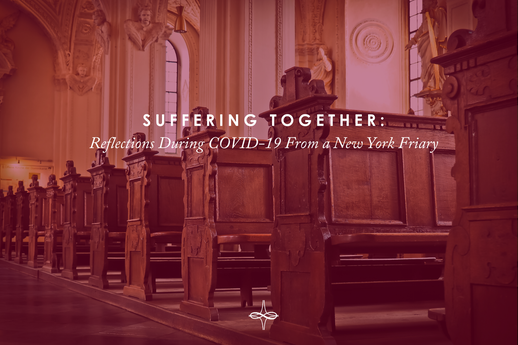
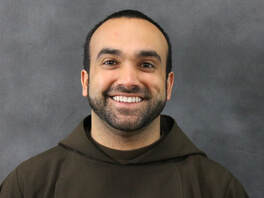
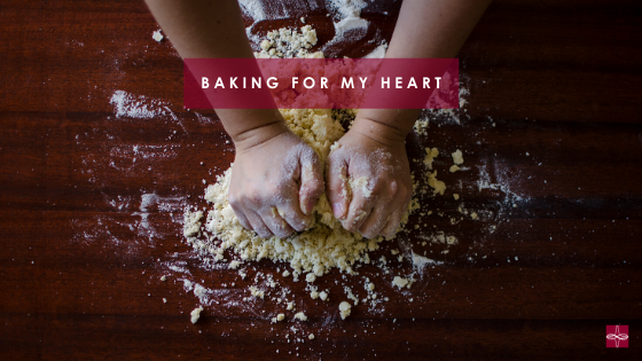

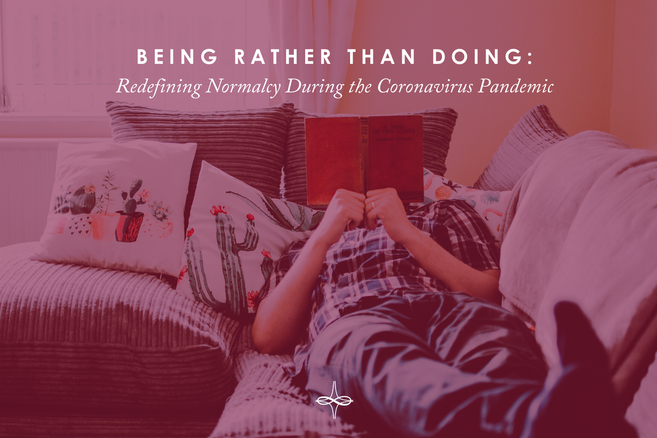

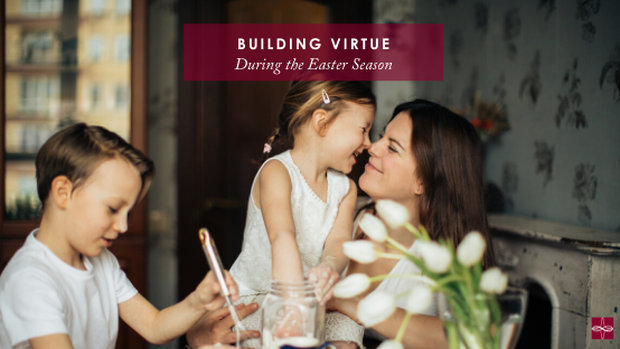

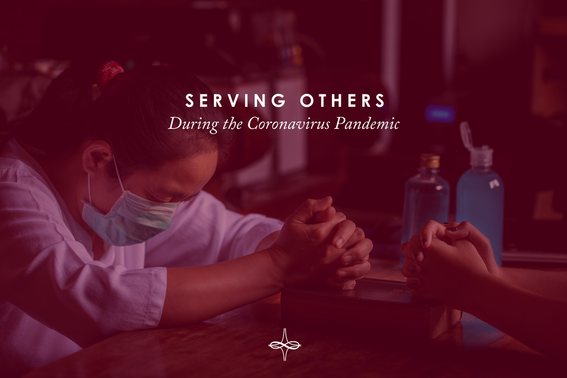

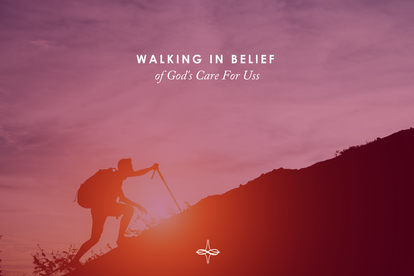

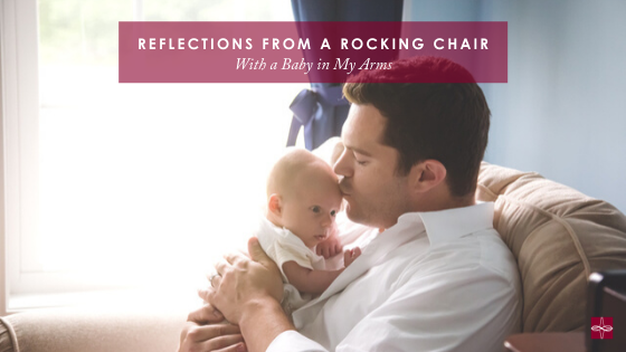

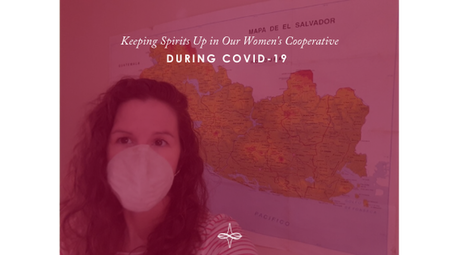

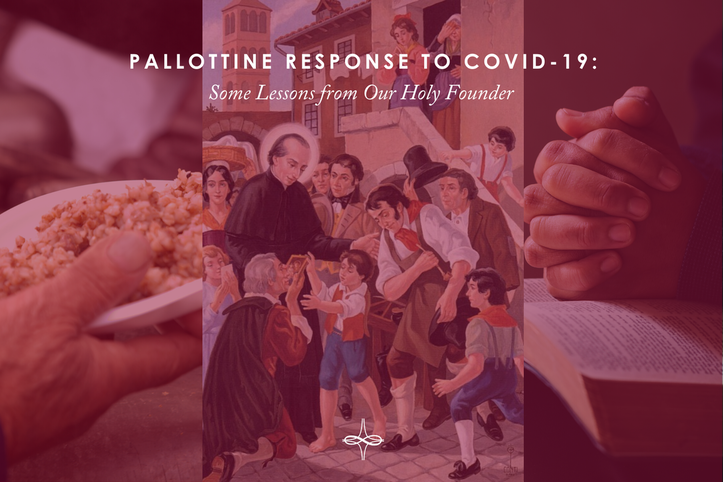
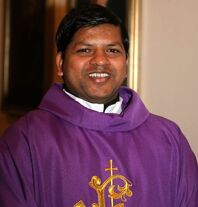
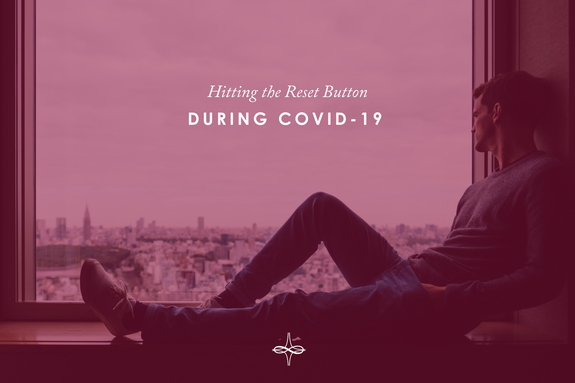
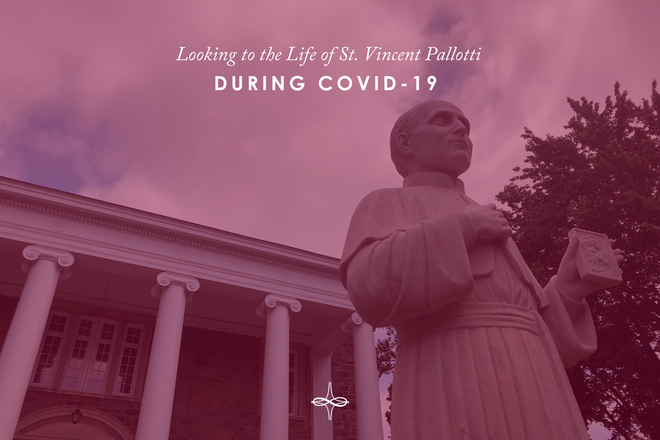
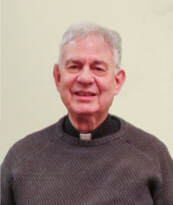


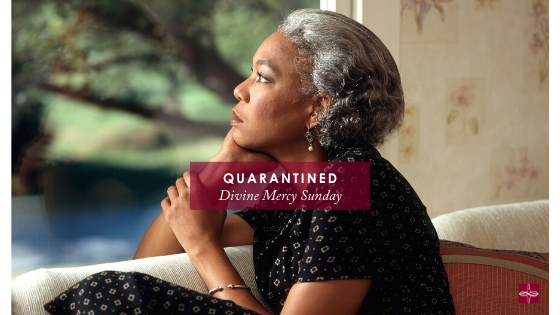

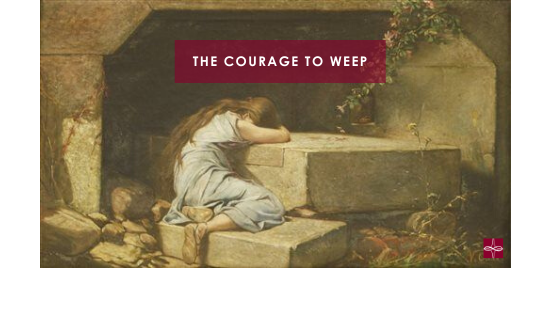

 RSS Feed
RSS Feed